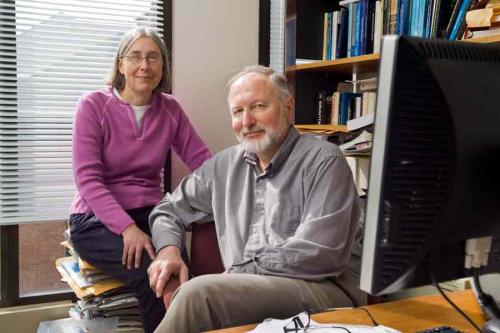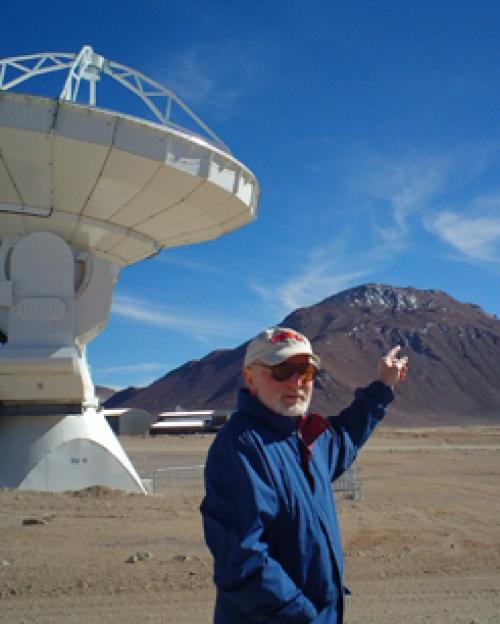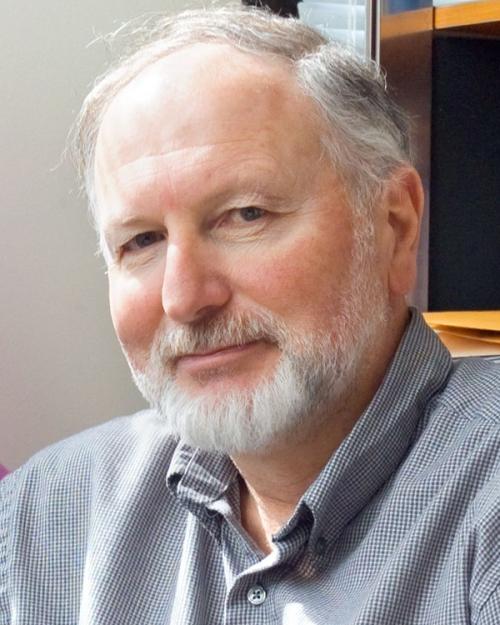Riccardo Giovanelli, professor emeritus of astronomy in the College of Arts and Sciences, died Dec. 14 at his home in Ithaca after a long battle with Parkinson’s disease. He was 76.
“Riccardo will be missed by all of us who treasured his gracious collegiality and kindness in working with colleagues and students and his passion for the science of astronomy,” said Jonathan Lunine, the David C. Duncan Professor in the Physical Science and chair of astronomy (A&S).
An observational cosmologist studying the structure, evolution and environments of galaxies, Giovanelli had research interests that were “quite broad, ranging from his early work on high-velocity neutral hydrogen clouds in the Milky Way to many seminal works involving the nature of galaxies,” said Terry Herter, professor of astronomy (A&S), “especially with emphasis on using multiple wavelengths and large, statistically significant samples to deduce their properties.”
Giovanelli’s research incorporated observations made with numerous ground- and space-based telescopes to study galaxies and their distribution and to use them to determine fundamental cosmological parameters.
“The carbon in our bodies, the silicon in our computers, the gold in gifts we give a girlfriend or boyfriend – all these things were made with stuff being produced when our galaxies were born,” Giovanelli told the Cornell Chronicle in 2010. “Understanding that process is understanding how the universe became sophisticated enough in a chemical way to produce things we enjoy now, like … movies and the stuff we use to build telescopes.”
Born in Italy in 1946, Giovanelli spent most of his youth in Argentina. He received an undergraduate degree in physics from the University of Bologna, Italy, and a Ph.D. from Indiana University in 1976. He met his wife and lifelong collaborator, Martha Haynes, Distinguished Professor of Arts and Sciences in Astronomy (A&S), at Indiana University.
In 1978, Giovanelli joined the Arecibo Observatory in Puerto Rico as a scientific staff member. During his 13 years with Arecibo, he served as head of the Radio Astronomy Group and was a leader in Arecibo’s technical developments, including the construction of the Gregorian optical system and the deployment of the Arecibo L-band Feed Array (ALFA) radio camera.
He put the ALFA camera to use as the principal investigator of the Arecibo Legacy Fast ALFA (ALFALFA) survey, which he co-led with Haynes. The survey performed the first robust census of gas-bearing galaxies in the local universe regardless of their stellar properties. The vast project required 4,400 hours of telescope time and resulted in more than 100 papers, 98 of which Giovanelli co-authored. Among its many findings, the survey detected an enigmatic population of galaxies with dark matter and gas and almost no detectable starlight.
In 1989, Giovanelli and Haynes discovered a proto-galaxy, the first ever found in the process of gestation. Astronomer Bruce Partridge of Haverford College told The New York Times that “the classic picture of how a galaxy is formed is now coming unraveled, and what Giovanelli and Haynes have done is help to unravel it.”
Giovanelli joined Cornell in 1991, and during the 1990s became “the initiator and driving force” behind the development of the Cornell-led Cerro Chajnantor Atacama Telescope (CCAT) initiative to build a submillimeter telescope, according to Herter, the current project director.
As CCAT’s first director, Giovanelli served for more than 15 years, overseeing the project’s organization, planning and coordination. He also led the exploration and testing that identified the superb site on Cerro Chajnantor in the high Atacama Desert region of northern Chile where the telescope – now renamed the Fred Young Submillimeter Telescope – is currently being built.
“He was an excellent scientist as well as a treasured and valued colleague,” said Herter.
Among his many honors, Giovanelli received the prestigious Henry Draper Medal from the National Academy of Sciences, along with Haynes, for the discovery of the filamentary nature of the large-scale structure in the universe.
He also received one of the highest honors that Italy bestows upon scientists, the Cavaliere nell’Ordine al Merito della Repubblica Italiana. In addition, he was a member of the American Astronomical Society, the International Astronomical Union and the American Association for the Advancement of Science.
In 2006, the Department of Astronomy held a symposium to honor Giovanelli’s 60th birthday. The event focused on cosmology and increasingly powerful telescopes, like the CCAT project he was leading. The symposium also honored Giovanelli’s passion for soccer; the World Cup played on a giant screen in the background while friends and colleagues shared stories of grad school escapades, marathon observing sessions at the Arecibo Observatory, and the challenges of dealing with border police, long-abandoned land mines and bandits in the early exploration of telescope sites in the Chajnantor region.
“Riccardo will be remembered by all for his kindness, generous treatment of his students and colleagues, and his encyclopedic knowledge of astronomy and its history. But his close friends will also recall his somewhat selective tastes in food, as exemplified by the five basic food groups: steak, prosciutto, parmesan cheese, ice cream and rum, perhaps symbolizing his mixed cultural heritage and life experiences,” said Philip Nicholson, professor of astronomy (A&S).
Giovanelli is survived by Haynes; his mother, Franca Gatti; his brother Carlo Giovanelli and sister-in-law Anna Fiaccavento; and his nephew, Alessio Giovanelli. He was predeceased by his father, Enzo Giovanelli.
Celebrations of Giovanelli’s life – he requested that he not be mourned “but rather to be celebrated for a life well lived” – will be held in Ithaca and in Italy next year.
Read the story in the Cornell Chronicle.






